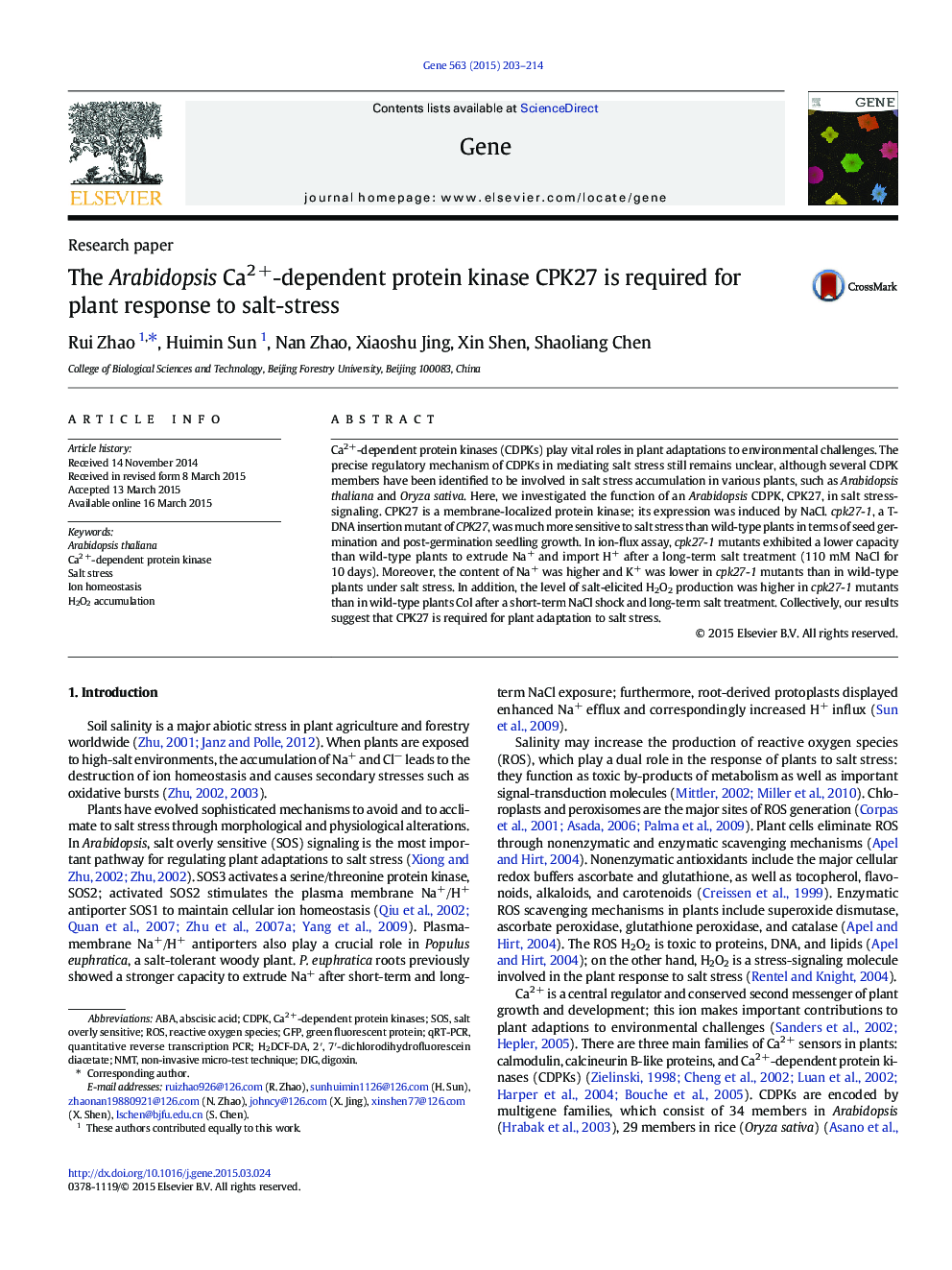| Article ID | Journal | Published Year | Pages | File Type |
|---|---|---|---|---|
| 5905472 | Gene | 2015 | 12 Pages |
Abstract
Ca2Â +-dependent protein kinases (CDPKs) play vital roles in plant adaptations to environmental challenges. The precise regulatory mechanism of CDPKs in mediating salt stress still remains unclear, although several CDPK members have been identified to be involved in salt stress accumulation in various plants, such as Arabidopsis thaliana and Oryza sativa. Here, we investigated the function of an Arabidopsis CDPK, CPK27, in salt stress-signaling. CPK27 is a membrane-localized protein kinase; its expression was induced by NaCl. cpk27-1, a T-DNA insertion mutant of CPK27, was much more sensitive to salt stress than wild-type plants in terms of seed germination and post-germination seedling growth. In ion-flux assay, cpk27-1 mutants exhibited a lower capacity than wild-type plants to extrude Na+ and import H+ after a long-term salt treatment (110Â mM NaCl for 10Â days). Moreover, the content of Na+ was higher and K+ was lower in cpk27-1 mutants than in wild-type plants under salt stress. In addition, the level of salt-elicited H2O2 production was higher in cpk27-1 mutants than in wild-type plants Col after a short-term NaCl shock and long-term salt treatment. Collectively, our results suggest that CPK27 is required for plant adaptation to salt stress.
Keywords
Related Topics
Life Sciences
Biochemistry, Genetics and Molecular Biology
Genetics
Authors
Rui Zhao, Huimin Sun, Nan Zhao, Xiaoshu Jing, Xin Shen, Shaoliang Chen,
